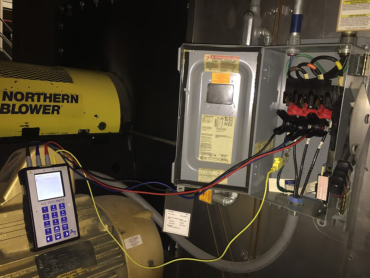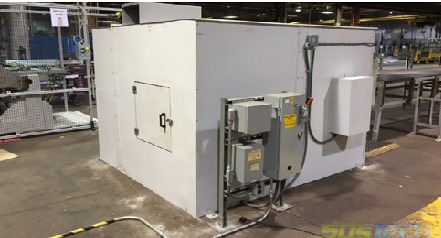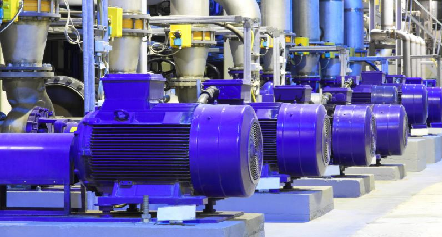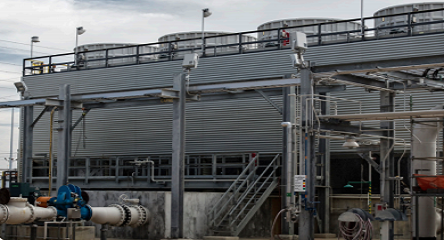Automotive Manufacturer Compares In-House Third-Party Motor Testing. Guess Which One Saved the Most Time and Money?

The Company
A large automotive manufacturing facility in the Midwest scheduled a planned shutdown in July 2018. In operation since the early ‘80s, the plant spans over 3 million square feet and contains hundreds of motors and other essential equipment required for their stamping, injection molding, welding, painting, and assembly processes. The engineering coordinator, Rich DaRe, has been a reliability professional for over a decade and has taught predictive technologies for the vehicle manufacturer since 2014. DaRe came upon an interesting opportunity to compare costs of predictive maintenance approaches.
Two Predictive Maintenance Teams Compete

During preparation for the planned shutdown, which was to last one week during the summer, DaRe learned that an outside contractor had been hired to come in to test motors. Having relied upon the hand-held ALL-TEST PRO 5™ motor testing instrument to perform in-house condition monitoring for the plant for the past several years, he was curious to know if hiring a third-party would be more or less costly for the company than performing motor testing in-house.
DaRe reached out to his fellow in-house PdM technician, who agreed to help him test motors with the AT5™ during the planned shutdown period. The plan was to test 90% of the motors in the manufacturing plant, so the outside contractors were assigned their section while the in-house PdM professionals arranged testing for their specified motors.

When the shutdown began, the motors to be tested were brought offline and disconnected from the variable frequency drives where required. DaRe and his PdM partner tested each motor using the AT5™ de-energized motor testing instrument, quickly collected the data for each motor, and then reconnecting the VFDs.
The Results
At the end of the week, DaRe reviewed the time it took for the outside contractor to perform motor testing and compared it to the time it took the in-house PdM team. The in-house team had tested 394 motors with the highly portable AT5™ de-energized motor testing instrument over a period of 128 hours. This time included disconnecting the motor leads when required, taking the readings, re-wiring the motors back up to the VFDs, and analyzing the AT5™ reports. In comparison, it took 270 hours for the outside contractor to test 185 motors using their proprietary PdM equipment (contractor hours include a plant escort).
Lessons Learned
Manufacturers need reliability programs. Catching motors before they fail saves us headaches – and a ton of money by avoiding unplanned shutdowns! The in-house team’s testing revealed two motors that needed to be replaced, and the outside contractor discovered one motor to replace. Being able to replace motors before they cause problems to the production line, and potentially other equipment, is critical for plant reliability.
Testing in-house can save you time, and therefore, money – when you have the right equipment! Using the AT5™ de-energized motor testing instrument enabled the in-house reliability professionals to test a motor in only 20 minutes (includes moving between motors), whereas it took the third-party professionals an average of approximately 90 minutes per motor using their proprietary technology (includes time required to move between motors, and equipment size/weight meant a pulley system was sometimes needed).
“It has been a superior approach for getting the condition of our motors and will save us a lot of headaches in the long run,” states Rich DaRe, the Engineering Coordinator.
“There is great benefit to developing in-house experts, having your own people making data-reinforced decisions that reduce costs and increase plant profitability.”
The AT5™ motor circuit analyzer offers a complete electric motor health analysis in minutes, which makes motor testing during a planned shutdown extremely efficient. “The real key here is the time it saved,” declares DaRe, who initially learned about the high-tech instruments from ALL-TEST Pro at an International Maintenance Conference about a decade ago. “Having our people in-house using the AT5™ instruments has proved to be a time-saver with great results.”
The ALL-TEST PRO 5™ tests all types of motors, including induction, synchronous, AC, DC, brushless DC, servo and wound rotors, as well as single phase motors. The health of all motor components is evaluated, including but not limited to induction windings and rotors, DC field windings and armatures, and field and rotor coils in synchronous motors.
Single and 3-phase transformers, pole and pad mounted, are also ideal candidates for evaluation with the portable, lightweight AT5™.
With a memory storage capacity for more than 650 tests, the ALL-TEST PRO 5™ has specific motor trending data accessible at the touch of a button. Test results are easily uploaded to a computer and the MCA™ Software provides expert diagnosis, trending, and a wide variety of printed or on-screen reports. With the ability to perform complete stator and rotor analysis, reliability professionals can detect early faults in motors, transformers and generators. Tests, which can be performed from distances of more than 1,000 feet away, produce reports that show bad connections, winding and turn faults, air gap issues, broken rotor bars, contamination, and ground faults. The auto diagnosis within the instrument provides an immediate status report on the equipment’s health, making route-based testing and trending extremely efficient.
Why Test Motors? Because they fail!
About ALL-TEST Pro, LLC.
ALL-TEST Pro delivers on the promise of true motor maintenance and troubleshooting, with innovative diagnostic tools, software, and support that enable you to keep your business running. We ensure the reliability of motors in the field and help to maximize the productivity of maintenance teams everywhere, backing every ALL-TEST Pro product with unmatched motor testing expertise.







